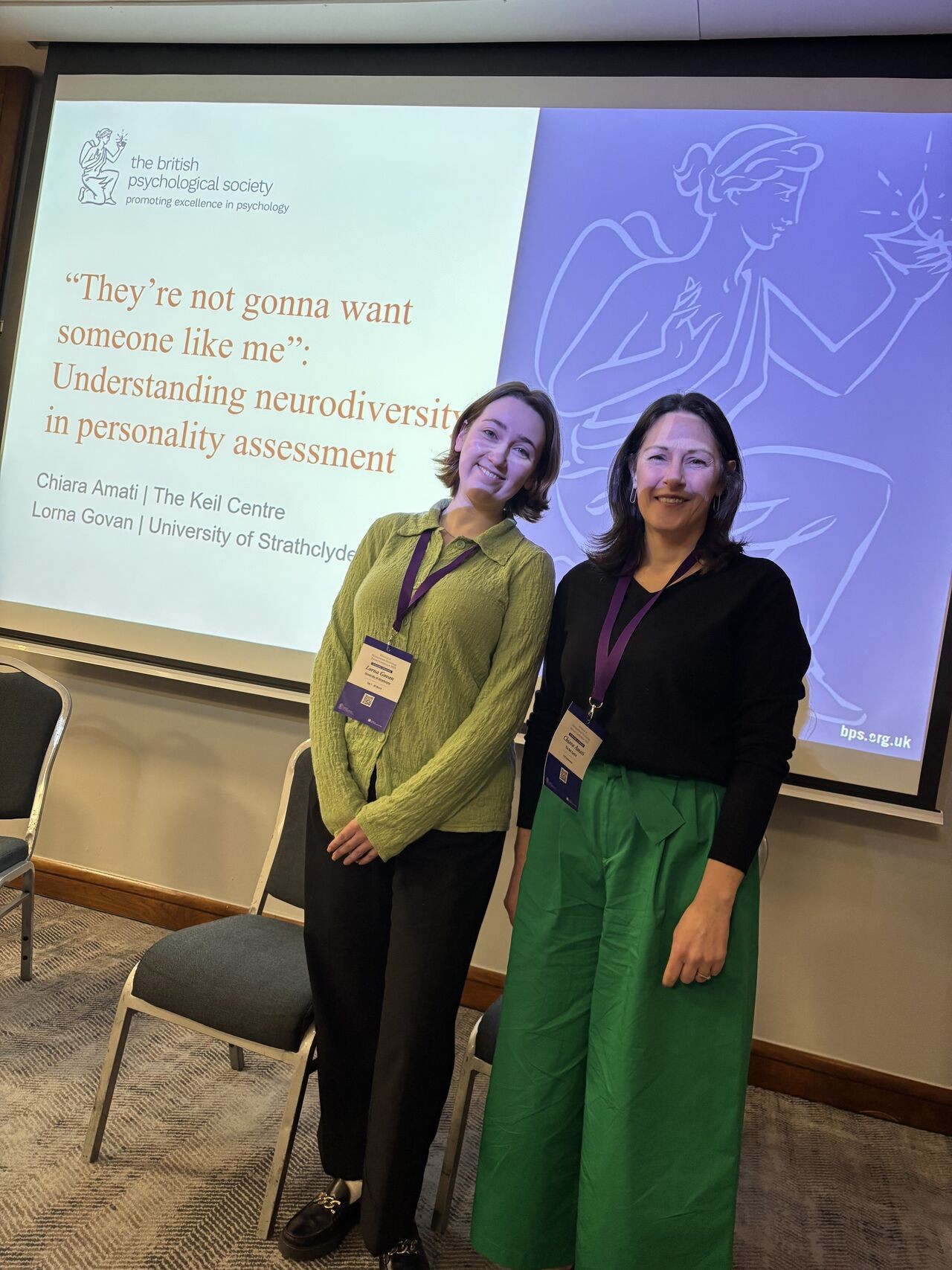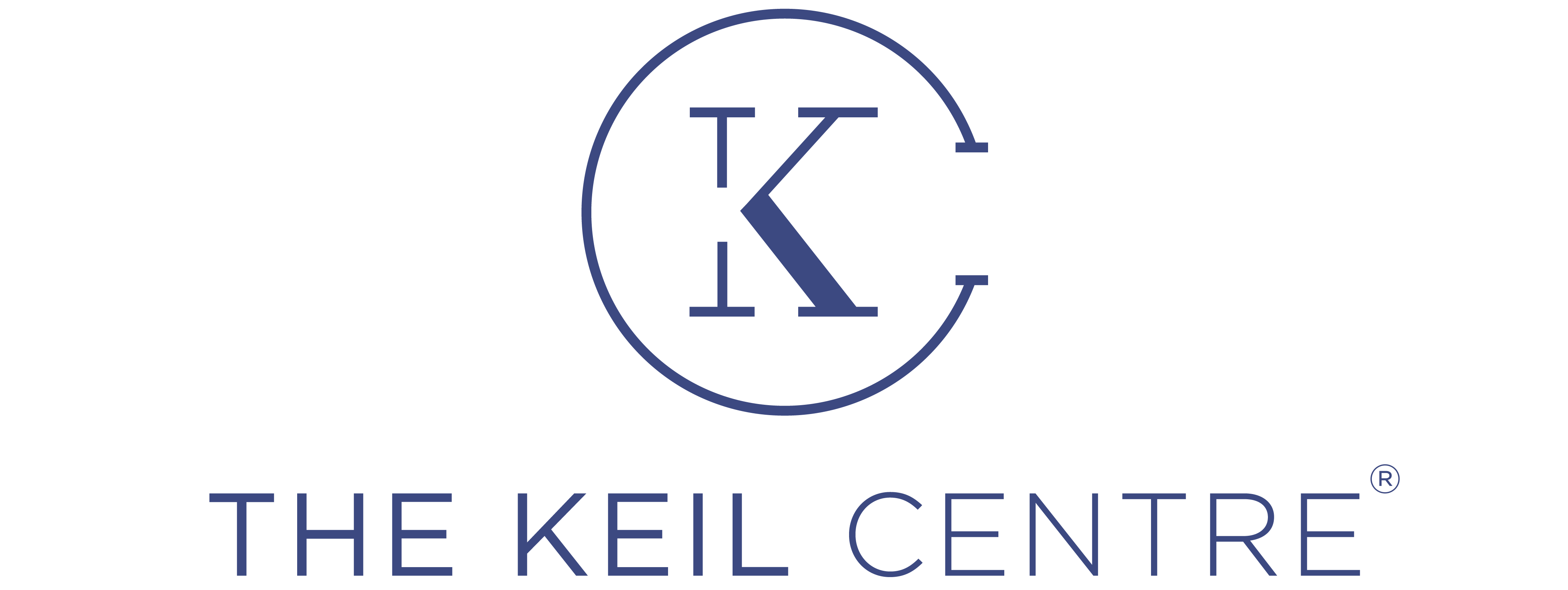Neurodiversity in Leadership Assessment: Q&A
May 23, 2025

The Keil Centre conducts specialist personality assessment for leadership roles for public and private sector organisations who want to ensure their process is inclusive for all candidates. The Keil Centre’s Chiara Amati worked with Strathclyde University MSc student Lorna Govan to better understand the experience of neurodiverse candidates in personality assessment. In this article they talk about the research and their experience presenting at the recent BPS Occupational Psychology Conference.
- Why was this research commissioned?
Chiara: Recruitment into leadership roles often requires candidates to complete a leadership style assessment; this assessment is typically based on completion of online personality questionnaires and, sometimes, of an online ability test. We wanted to better understand the experience of neurodiverse candidates with these methods of selection – but there is not a lot of research out there on this currently so we thought we would commission research to explore this further.
“At Keil, we pride ourselves on our evidence-based practice; this means continually engaging with the evidence and, sometimes, also being more proactive and commissioning research on topics that are relevant to our work”
- What was the research?
Lorna: I carried out a qualitative research project, as part of my MSc in Occupational Psychology at the University of Strathclyde. My research found generally negative reactions to personality assessments from both autistic and ADHD participants. Most participants struggled at times with comprehension of the questions, as many felt that additional context was needed to answer questions. Many participants experienced negative emotional reactions to personality assessments, some even stating that the use of personality assessments in the hiring process would deter them from applying to roles in the future. Furthermore, perceived face validity for the assessments was very low, as the perception was that these assessments were used either deliberately or through thoughtlessness to sift neurodivergent applicants out of the candidate pool.
“It does feel like you’re trying to fit into this box of the perfect employee. Whether or not that describes you, you’ll like shave bits off the side so you fit into that box.”
“I knew it before I had even answered. I knew I was gonna get screened out.”
- Why present at the conference?
Chiara: The topic of neurodiversity was of great interest to the conference and we presented as a “double-act”: I talked about the practice side and Lorna about the research she conducted. The presentation was very well received – it was standing room only! We had lots of questions and comments. It was clearly an area people want to know more about – many practitioners are concerned about the lack of concrete evidence from the research on which to base their practice.
- Key take-aways for you?
Lorna: The challenges faced by neurodiverse people in this instance are a case not of deliberate exclusion but of presumption. Neurodivergent individuals are, by definition, not the norm. When we, as psychologists use normative data there is a chance that neurodivergent participants are reduced to outliers and disregarded. While this isn’t wrong, it can leave these perspectives out of the conversation. More research is needed focusing on neurodiverse people specifically. Furthermore, not just in selection but in all elements of work, we should ask the opinions of those who we know think differently to ourselves.
Chiara: I felt particularly saddened that some candidates feel that are doomed to fail in the process from the start. As a psychologist, I want to ensure everybody has a fair chance in assessment – this is the case for neurodiverse candidates but also for those from other groups who can also feel disempowered by selection processes, such as candidates from minority groups or candidates with disabilities. There is clearly more we can do here.
- Let’s finish with a more technical question: what is masking?
Lorna: Deliberate monitoring or changing of behaviour to appear more neuro-typical; this can include working themselves to make eye contact, supressing stimming behaviour (such as hand clapping), or copying behaviour or phrases they have seen from neurotypical individuals or in media. Whilst most people engage in some form of masking, especially at work, in neurodivergent individuals masking is motivated by stigma and situational pressures. Masking often or for long periods of time can result in increased likelihood of developing mental health conditions such as depression and anxiety. This is obviously a complex topic, but it is worth considering the potential that neurodiverse individuals who mask may not even be aware that they are doing so, and that this may have potential effects on personality assessments that they partake in.
What next?
Lorna: In terms of where the research could lead, I think there is room for further investigation into the experiences of neurodiverse people with masking in the workplace. With what we know about the negative mental health impact of masking, it’s important that neurodivergent individuals feel that they can be their full selves at work. However, we have yet to understand how employers can make tangible change towards this goal, and as such more research that connects research and practice is needed. I’m also going to start a PhD looking at looks-based discrimination during the hiring process, although I hope to stay in close contact with the Keil Centre.
For more information on how we can support leadership and management selection, please contact Chiara & Lorna or see here.

